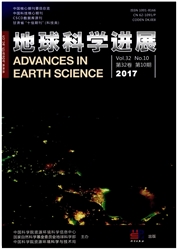

 中文摘要:
中文摘要:
生态文明建设的首要任务是优化国土空间开发格局,实施主体功能区战略、形成主体功能区布局是优化空间格局的战略重点。文章从发达国家开展国土空间规划的特征分析入手,结合我国长期缺失全国国土远景规划所产生的空间开发无序、区域发展失衡以及各地盲目推进工业化和城市化等问题的解剖,阐释了主体功能区战略在尊重资源环境承载能力、区分不同地区主体功能、控制开发强度和调整空间结构以及生态产品理论和应用等方面的创新,论证了主体功能区规划在我国国土空间布局规划体系中的战略性、基础性和约束性地位。进而从“1、2、3、4”战略任务入手论述了优化国土空间开发格局的主要方面:“1”是建设一个美好家园,“2”是促进陆地与海洋两大国土空间的统筹发展,“3”是构建我国国土空间的城市化、农业和生态安全3大战略格局,“4”是形成我国优化、重点、限制和禁止开发4类主体功能区域。最后,从咨询建议的提出、指标体系建立、国土空间评价、区划草案研制以及构建基础理论、研制技术规程等方面,系统介绍了中科院研究团队在过去10年间面向主体功能区战略的形成所发挥的科技支撑作用。
 英文摘要:
英文摘要:
The primary task of ecological civilization construction is the optimization of spatial patterns of geo- graphical space of which the key strategy is to implement the strategy of Major Function Oriented Zoning (MFOZ) and build the layout of MFOZ. Based on the analysis of the characteristics of spatial planning in de- veloped countries, the problems of disorder of spatial development, imbalance of regional development, as well as the blindly processes of industrialization and urbanization caused by the lack of long-term planning of territory space, this paper illustrates the innovations of MFOZ in the aspects of the carrying capacity of resourc- es and environment, distinguishing the major functions of different regions, controlling development intensity and adjusting spatial structure, and the theory and practice of ecological products, and then demonstrates the strategic, fundamental and constrained status of MFOZ in China' s spatial planning system. Furthermore, the " 1,2,3,4" strategic tasks are discussed as the main measures of the optimization of geographical spatial development: "1" is to build a better homeland, "2" is to promote the overall development of the territorial and ocean spaces, "3" is to construct the three strategic patterns of urbanization, agriculture, and ecological security, and "4" is to form the four types of major functional zones including optimized, prioritized, restricted, and prohibited zones. Finally, from the propose of the sug- gestions to the central government, the construction of index system, the evaluation of geographical space, the research of zon- ing draft, the building of essential theories, and the development of technical regulations, the technological supporting role that the Chinese Academy of Sciences research team has played in the formation of MFOZ in the past 10 years was systematically discussed.
 同期刊论文项目
同期刊论文项目
 同项目期刊论文
同项目期刊论文
 Major Function Oriented Zone: New method of spatial regulation for reshaping regional development pa
Major Function Oriented Zone: New method of spatial regulation for reshaping regional development pa 期刊信息
期刊信息
